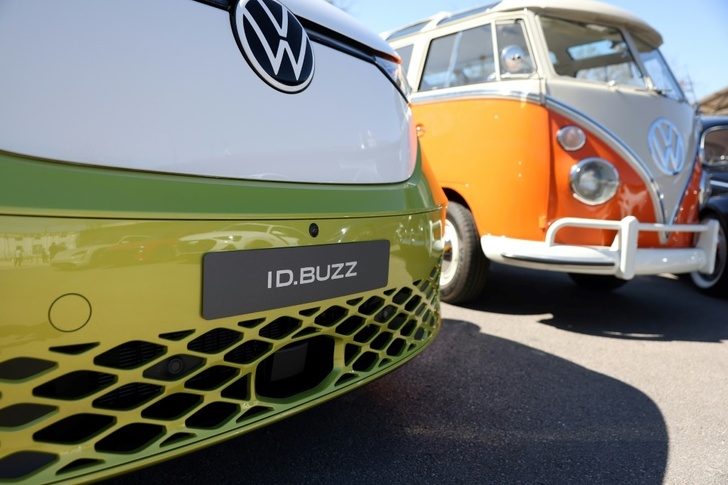Canadian Prime Minister Justin Trudeau announced Friday up to 13.2 billion Canadian dollars ($9.8 billion) in subsidies over 10 years for Volkswagen's first overseas battery plant, to be built in St. Thomas, Ontario.
The production support matches incentives by US President Joe Biden's administration, as Washington's trading partners work to keep up with subsidies under the ambitious Inflation Reduction Act (IRA) amid anxieties surrounding it.
Already, European leaders fear EU-based companies could move to the US due to benefits from the act -- which funnels some $370 billion into subsidies for the United States' energy transition.
"With this historic project, we're not just bringing back manufacturing, we're bringing back a strong thriving economy for this community, and we're delivering a national anchor for Canada's electric vehicle supply chain," Trudeau told a news conference on Friday.
He called the funding "a generational investment" in a new plant that is expected to generate about Can$200 billion in value.
His industry minister, François-Philippe Champagne, said Ottawa expects to see a full return on its investment within five years.
Volkswagen, which announced in March plans to build the plant in St. Thomas, is investing Can$7 billion in the 370-acre facility -- the size of around 200 soccer fields -- which, according to a statement from Trudeau's office is "the largest electric vehicle-related investment in Canadian history."
Construction of what is to be also the biggest manufacturing facility in Canada is set to start next year, while battery production for up to one million electric vehicles annually will begin in 2027.
The plant is expected to create up to 3,000 direct jobs and up to 30,000 indirect jobs, according to a statement.
- Drive for EV production -
Volkswagen is also setting up a series of battery plants in Europe, the first of which opens this year in Sweden. This will be followed by another in Salzgitter, Germany, in 2025.
With its own battery plants, Volkswagen is seeking to reduce its supply chain dependence on Asia.
It is also facing a tough fight against US rival Tesla for dominance of the electric car market.
Under its different brands, Volkswagen plans to introduce more than 25 different new electric models by 2030 in the United States.
The Canadian government funding of between Can$8 billion and Can$13.2 billion -- an amount that will depend on battery production levels -- will start being phased out in 2030 and completely eliminated after 2032.
Ontario province has also pledged Can$500 million for the plant.
Canada has been making a big push into batteries for electric vehicles, touting tax incentives, bountiful critical minerals and clean energy to attract auto makers.
When asked about the Inflation Reduction Aact, Trudeau commented that "the Canadian economy can't go toe to toe with that on a global overall scale."
"But we can be and we have been very strategic about where we want to step up and compete directly, and make sure that we get through the door," he said.
Unrest abroad such as that sparked by Russia's invasion of Ukraine, he added, "has reminded people that we need to be making things here in our countries" and firm up "supply chains that we can count on."
Besides Volkswagen, automaker Stellantis (formerly Fiat Chrysler and the French PSA Group) and LG Energy Solution have also partnered on a new battery plant in Canada, while French tire maker Michelin is expanding its local facility.
General Motors has also signed a long-term agreement with Brazilian mining giant Vale for supplies of Canadian nickel for use in EV batteries.
And earlier this month, Ford announced a Can$1.8 billion retooling of its assembly plant in Oakville, Ontario to make electric vehicles and batteries for the North American market.
amc/bys/jh
© Agence France-Presse
Your content is great. However, if any of the content contained herein violates any rights of yours, including those of copyright, please contact us immediately by e-mail at media[@]kissrpr.com.
Source: Story.KISSPR.com

